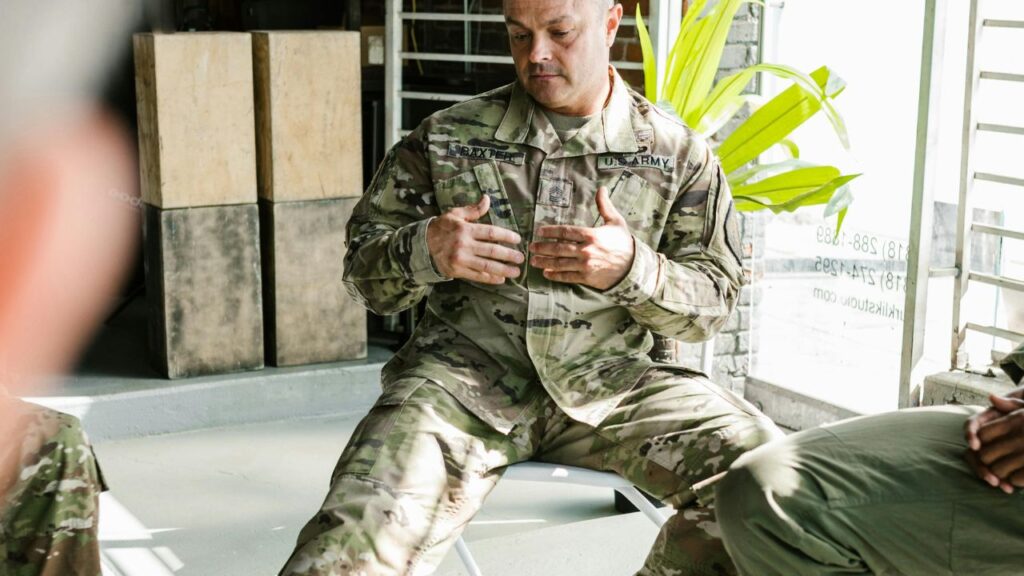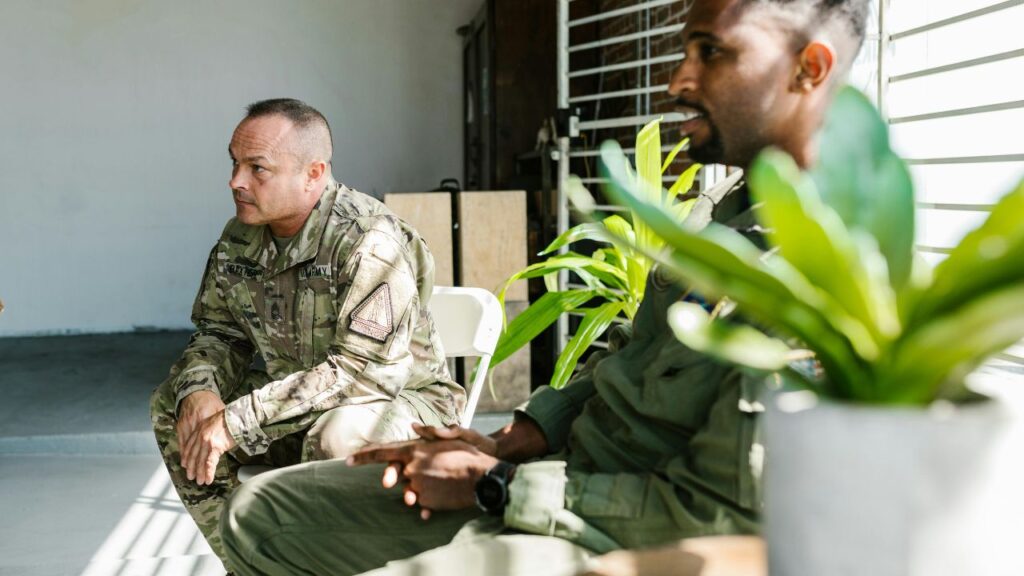Veterans face a distinct set of challenges when it comes to substance abuse and addiction. The experiences of military service, combat exposure, and the difficult transition to civilian life can all contribute to an increased risk of developing substance use disorders. Understanding these unique challenges is crucial for providing effective treatment and support for veterans seeking recovery.
The Impact of Military Service on Addiction Risk
Several factors contribute to the higher rates of substance abuse among veterans:
Combat Exposure
The traumatic experiences of combat can lead to substance use as a coping mechanism.
Post-Traumatic Stress Disorder (PTSD)
Many veterans develop PTSD, which is closely linked to substance abuse.
Physical Injuries and Chronic Pain
Veterans may turn to substances to manage pain from service-related injuries.
Difficulty Transitioning to Civilian Life
The challenges of reintegrating into civilian society can contribute to substance abuse.

Common Substance Abuse Issues Among Veterans
While veterans may struggle with various substances, some are more prevalent:
- Alcohol: Often used to self-medicate or cope with stress
- Prescription Opioids: Frequently prescribed for service-related injuries
- Marijuana: Sometimes used to manage anxiety or PTSD symptoms
- Tobacco: Higher rates of use compared to the general population
The Complex Interplay of PTSD and Addiction for Veterans
For many, PTSD and addiction are intertwined:
- PTSD symptoms can drive substance use as a form of self-medication
- Substance abuse can exacerbate PTSD symptoms
- Both conditions can reinforce each other, creating a cycle that’s difficult to break
Barriers to Treatment for Veterans
Veterans often face unique obstacles when seeking help for addiction:
- Stigma surrounding mental health and addiction in military culture
- Concerns about how seeking treatment might affect their military career
- Difficulty accessing specialized care, especially in rural areas
- Challenges navigating the Veterans Affairs (VA) healthcare system
- Reluctance to admit vulnerability or ask for help
Evidence-Based Treatment Approaches for Veterans
Effective treatment with addiction often involves:
Trauma-Informed Care
Recognizing and addressing the impact of trauma on substance use and recovery.
Dual Diagnosis Treatment
Simultaneously treating both addiction and co-occurring mental health disorders like PTSD or depression.
Cognitive Behavioral Therapy (CBT)
Helping veterans identify and change thought patterns that contribute to substance use.
Exposure Therapy
Gradually exposing veterans to trauma-related memories to reduce their power.
Medication-Assisted Treatment (MAT)
Using FDA-approved medications in combination with counseling and behavioral therapies.

The Importance of Peer Support
Peer support can be particularly beneficial for veterans in recovery:
- Veteran-specific support groups provide understanding and camaraderie
- Peer mentors who have military experience can offer unique insights
- Sharing experiences with fellow veterans can reduce feelings of isolation
Holistic Approaches to Veteran Recovery
A comprehensive approach to recovery for veterans often includes:
- Physical fitness and recreation therapy
- Mindfulness and meditation practices
- Vocational training and job placement assistance
- Family therapy and education
- Alternative therapies such as art or equine therapy
Swift River’s Commitment to Veteran Care
At Swift River, we recognize the unique needs of veterans struggling with addiction. Our specialized programs include:
- Treatment teams with expertise in military culture and veteran-specific issues
- Trauma-informed care that addresses both addiction and PTSD
- Collaboration with VA services to ensure continuity of care
- Family involvement to support the veteran’s recovery journey
- Comprehensive aftercare planning tailored to the veteran’s needs
We understand that the path to recovery is often complex and multifaceted. Our goal is to provide a supportive, understanding environment where patients can heal from both the visible and invisible wounds of service.
The Road to Recovery
Recovery is possible, and many veterans have successfully overcome addiction to lead fulfilling, substance-free lives. With the right support, treatment, and resources, patients can build resilience, heal from trauma, and reclaim their lives from addiction.
If you’re a veteran struggling with addiction, or if you’re concerned about a veteran in your life, don’t hesitate to reach out for help. Contact Swift River today at 413-570-9698 to learn more about our specialized programs. Our dedicated team is ready to support you on your journey to recovery, honoring your service while helping you build a healthier future.
Read more about our veteran treatment program.












